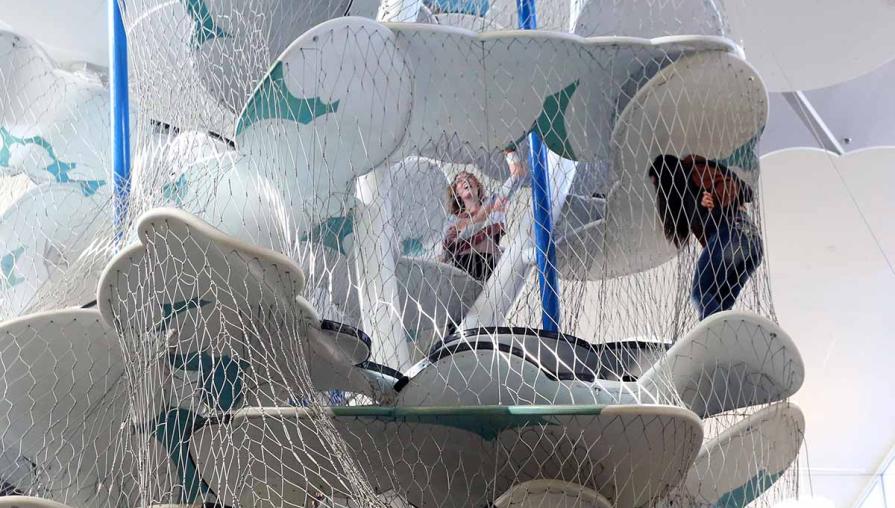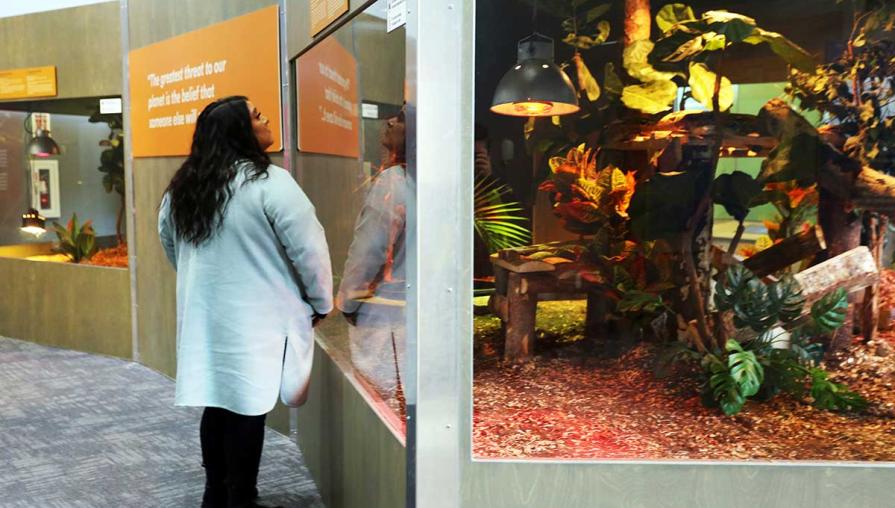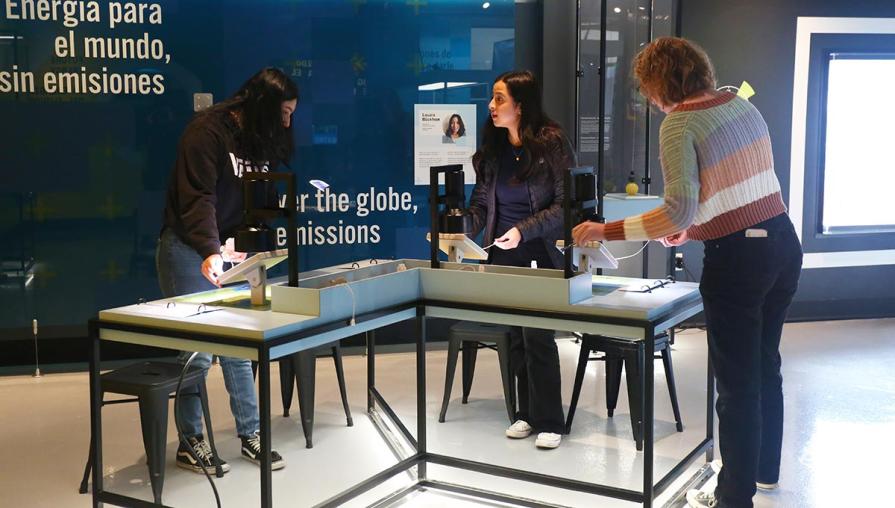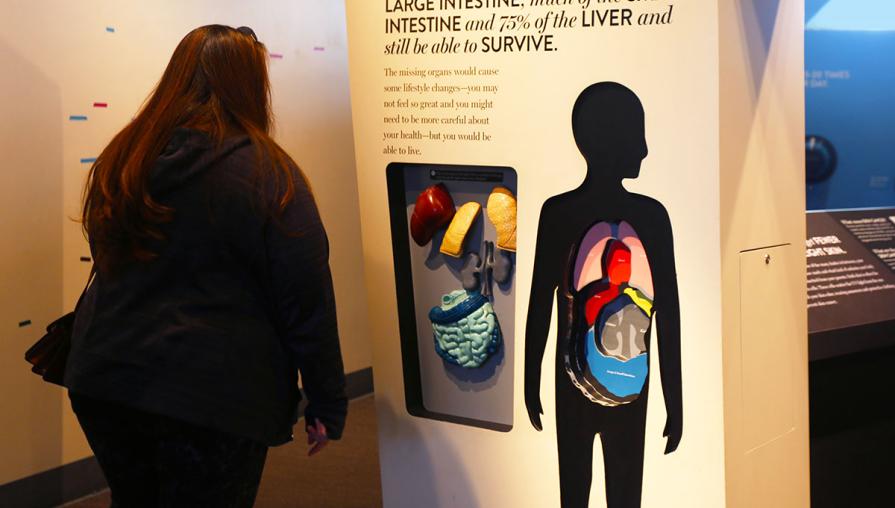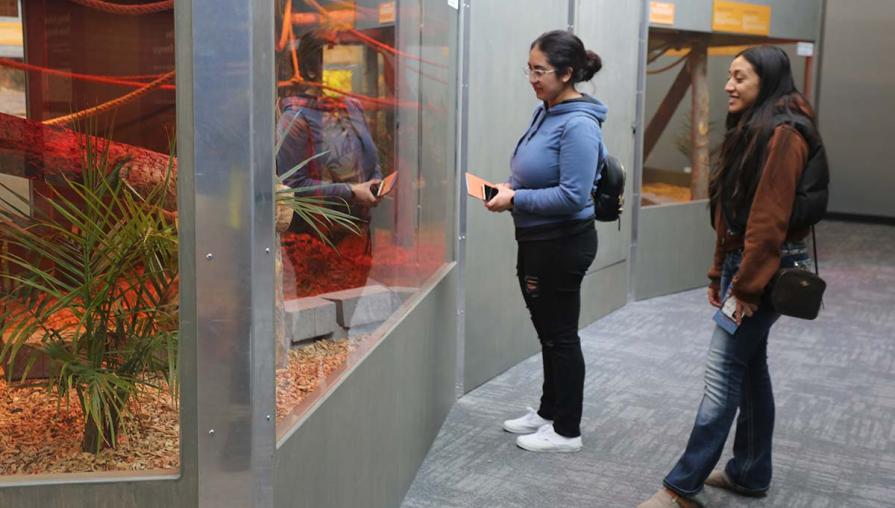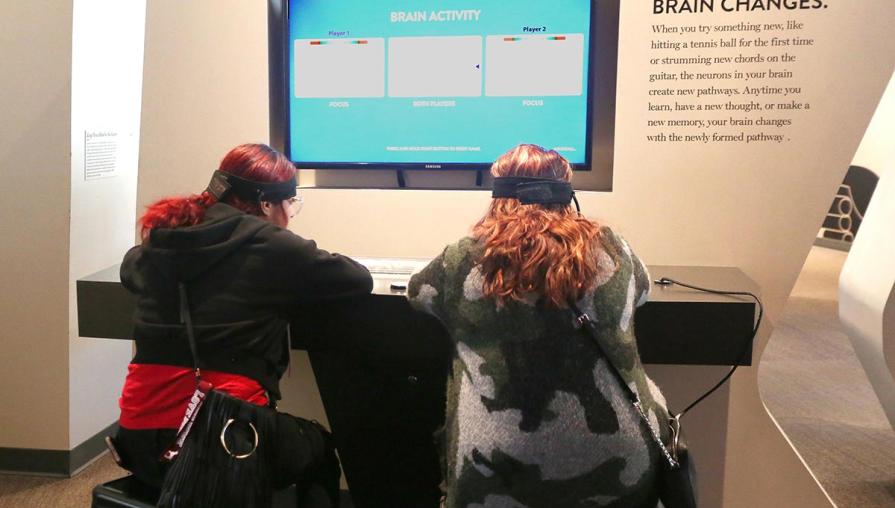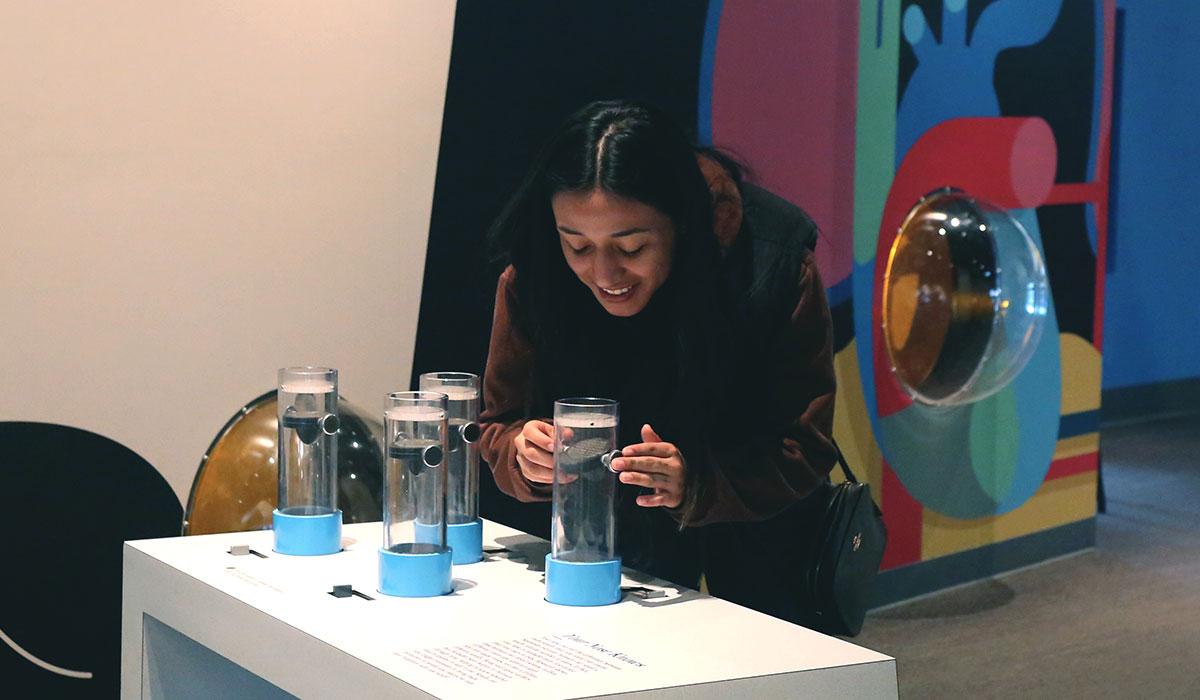
Do you remember the excitement of leaving the classroom and heading out on a fun-filled field trip when you were younger? Although this may not happen as often when you get to college, students in one of TMCC’s Early Childhood Education classes had the opportunity not only to get out of the classroom for some hands-on learning, they also got to play, an experience reminiscent of those early childhood excursions.
During the Introduction to Early Childhood Education class (ECE 250), Instructor Jencie Davies invited her students to explore the Terry Lee Wells Nevada Discovery Museum to engage with the exhibits. The purpose was for students to understand that children learn through active exploration and play by doing it themselves. The class itself is structured to offer an introduction to the historical and theoretical backgrounds of the early childhood education field, and part of the curriculum is learning about the foundational body of knowledge that the field presents. So, taking advantage of a community resource, students at the museum got some first-hand practice in how the experience of choice, wonder, and delight are central to providing high-quality education and care to young children.
“The students were able to have fun and learn a lot about the importance of these multi-sensory experiences that they can now apply in their own teaching practices with young children,” Davies said. “The students had a lot of positive feedback about the quality of the materials and the effort required to figure out some of the exhibits. We don’t just throw things in front of children, we have to be really intentional about the experiences that we give them to help them learn, and that’s something the students go to see through this field trip.”
The Discovery Museum features hands-on galleries and exhibitions for children and adults alike to engage with and learn from to inspire curiosity and investigation. Students were thrilled to be able to push toy boats through a representation of the Truckee River watershed, climb the cloud-shaped jungle gym, and battle each other in a game using only their minds.
The course as a whole focuses on developmentally appropriate practice with young children where the educator meets the children where they are as an age group and as individuals based on social and cultural contexts. This is an important through line for the entire program, which offers specialized courses for working with infants and toddlers, school-age children, and program administration.
Now more than ever, this field is playing a vital role not only in the lives of children and families, but the economy as well. As we move forward, especially out of the pandemic, families need a reliable support system that will care for their children while they’re working. Affordable, accessible and quality childhood education is crucial, and the ECE Program at the College is preparing qualified educators to meet those needs for families.
Alongside field trips, students in the program also have the chance to gain field experience in facilities like TMCC’s Child Care Center, which is designed to focus on the creative, emotional, intellectual, physical, and social growth of all the children who attend. When students graduate from this program, they’ll have a degree accredited by the Commission on the Accreditation of Early Childhood Higher Education Programs of the National Association for the Education of Young Children. The program also offers skills certificates and degrees in several areas of specialization in early care and education, including work with infants and toddlers, preschool age children, and administration of early childhood programs.
“While the program may be rigorous, we also focus on the joy of learning through play,” Davies said. “It’s really all about working with young children, which can be such a fun field to be a part of, especially if you’re well prepared.”
To learn more about the Early Childhood Education program, contact the Social Sciences Department.







